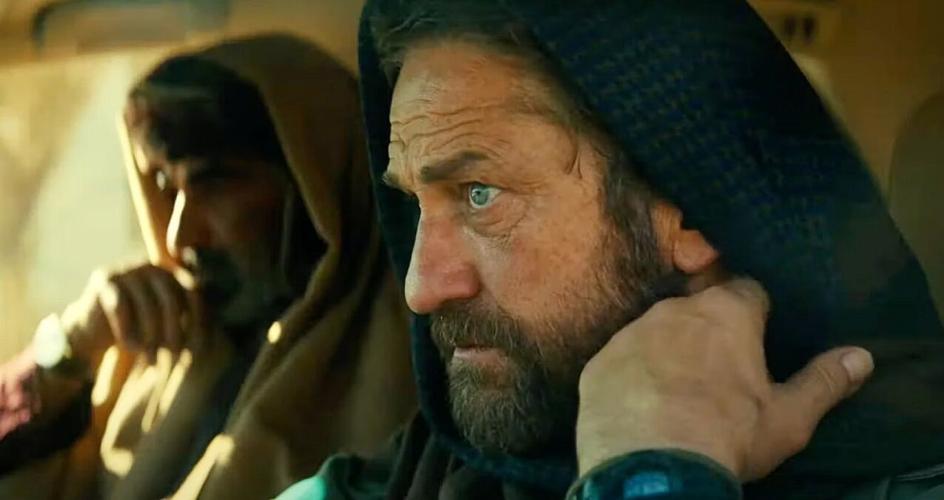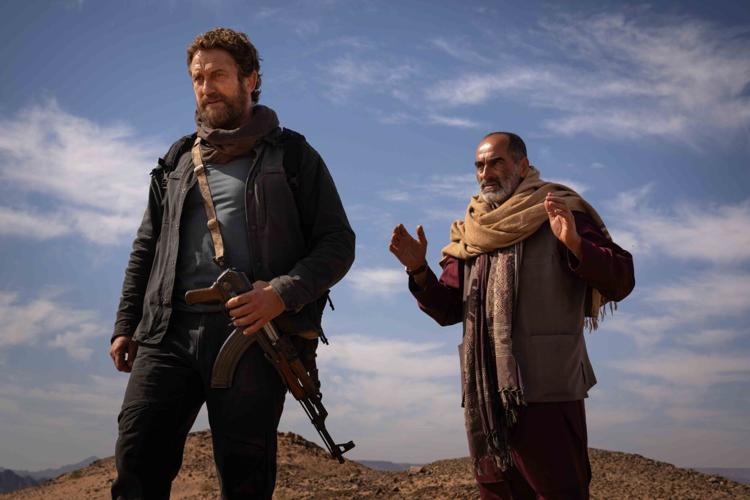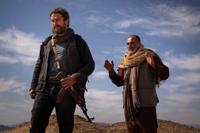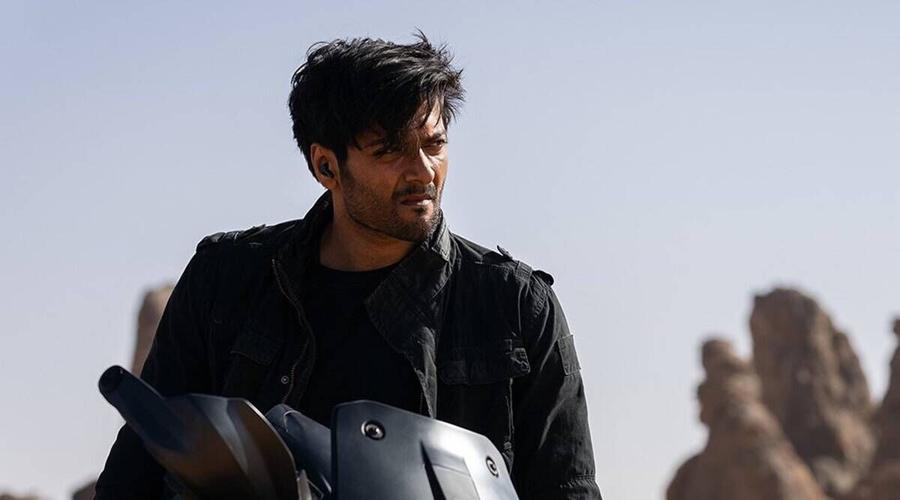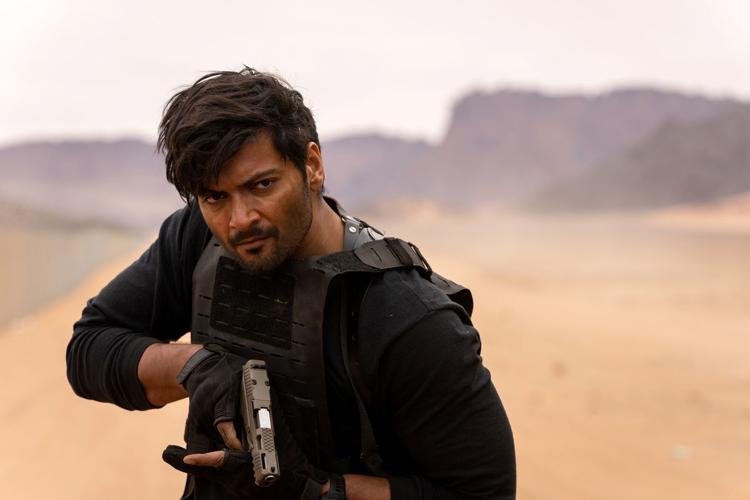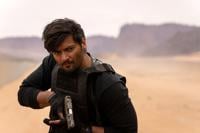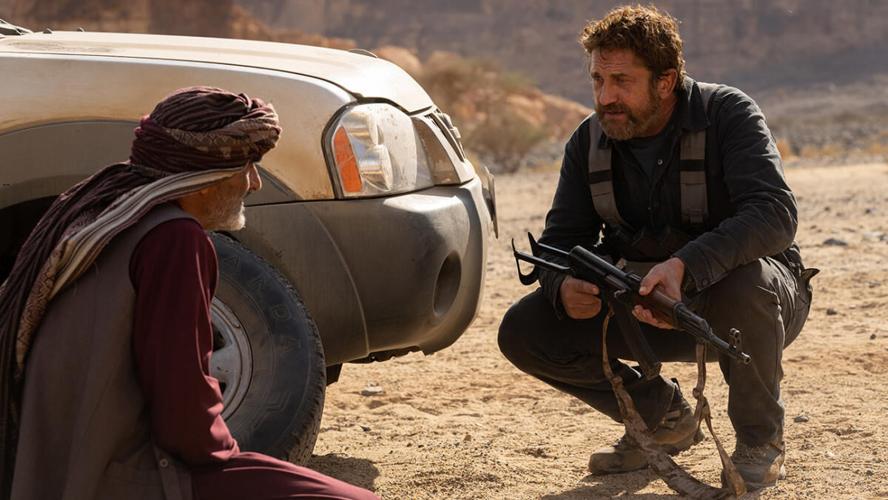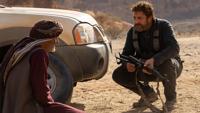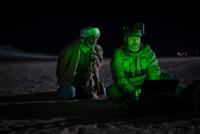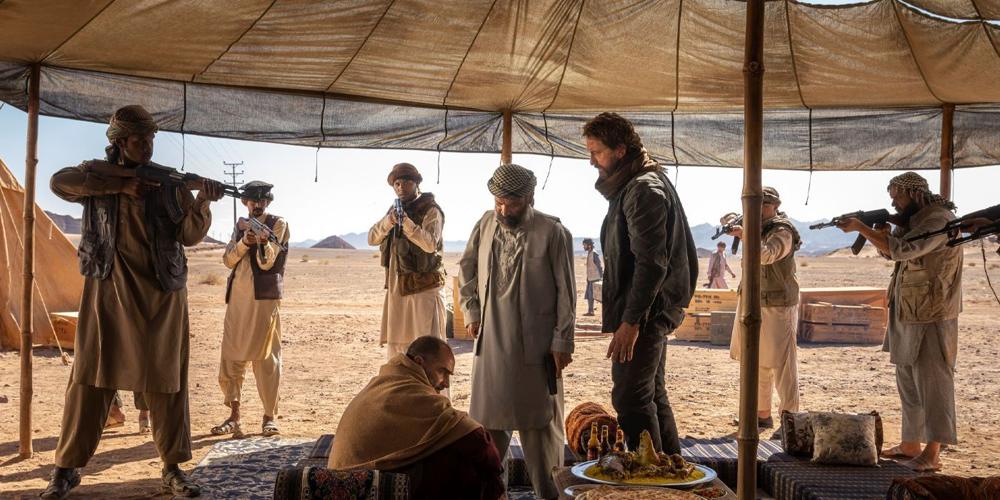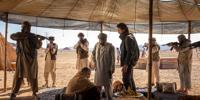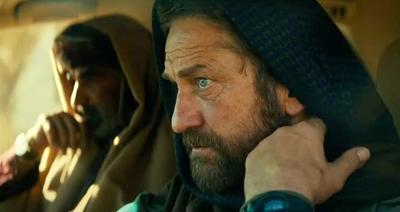If you're looking for a mid-budget, action thriller, this film is yet another to toss on the pile. It centers on two people on the run in a hostile country where the narrative involves those two people trying to escape that country. There have been a number of those kinds of films over the years, but, specifically the "two people on the run in a hostile country" genre has been done twice this year and the star of this one was also the star of another one this past year.
Gerard Butler (300 and Olympus Has Fallen) earlier this year was in a film called Plane (2023), which was about his character getting stuck in the Philippines with hostile Muslim men in a militia, trying to capture or kill him. Here, he stars as Tom Harris, a MI-6 agent who gets stuck in Afghanistan with hostile Muslim men in a militia, trying to capture or kill him. This film feels bigger or more epic. As such, there's more militaristic action on a grander scale. That might make it more engaging whereas the action in Plane is minimal by comparison.

Navid Negahban (Aladdin and American Sniper) co-stars as Mohammed or "Mo," a man who was born in Afghanistan but left at a young age due to various issues. He still considers Afghanistan his home and he still has family there. As a grown man, he chooses to help the American government, including the CIA in covert operations. He often works for them as a translator or guide. He's assigned to help Tom on his current mission. He has to tag along when Tom's mission fails and they have to flee the country.
It was only a month ago that Guy Ritchie's The Covenant (2023) was released in theaters. That film has almost the exact same plot, as the one here between Tom and Mo. The Covenant was about an Afghani or Muslim translator who has to flee the country with a white military man because the Taliban is chasing them and will execute them. That is pretty much exactly the same predicament for Tom and Mo.

The only difference is that Mo is more of a sidekick than the translator in The Covenant, played by Dar Salim. Here, Butler's character is the action star and Negahban's character is merely tagging along. For some, it could reinforce the white savior complex or trope in a lot of Hollywood films. Yet, Salim's character, a month ago, didn't fall into that trope. In fact, a lot of The Covenant is centered around Salim's character, which was refreshing. This film does some things to make Mo more fleshed out, but, mostly he feels like a tag-along.
Ali Fazal (Death on the Nile and Victoria & Abdul) also co-stars as Khalil Nazir, an ISI agent. ISI is Pakistan's equivalent to the CIA. When a nuclear facility is targeted and bombed, it's Agent Nazir who is assigned to track down the culprits. His job isn't to bring the culprits to court, but instead sell them to the black market. Unlike Plane or The Covenant or even the Oscar-nominated American Sniper, Agent Nazir is not your typical, evil Muslim who is an Islamic fundamentalist that wants to destroy the West and sees all from the West as infidels.

Agent Nazir is more nuanced and complicated. He's not a fundamentalist. He likes things from Western culture. He might even want to live there, as he's sick of the desert and the poverty. He criticizes the Taliban straight to their faces. He even chastises a child for his ignorance about the Koran and blind loyalty to the Taliban. Yet, he's not above killing anyone who gets in his way, but, in that, he's not much different from Tom and a one-on-one battle between the two is the obvious climax here.
Like The Covenant, it's interesting to have scenes in which Butler's character isn't a factor or present. It actually allows this film to focus on the Muslim characters and provide their perspectives about this situation, as well as on broader international politics. This might be surprising, given that the screenwriter served in the American military.

Mitchell LaFortune is the writer here. Reportedly, LaFortune was an analyst at the Defense Intelligence Agency. His work for the U.S. Army was developing counter-insurgency strategies in both Afghanistan and Pakistan. This job presumably would require LaFortune to have knowledge about these countries and the people in them that would go beyond stereotypes and tropes. That knowledge feels evidenced here.
LaFortune was himself deployed in Afghanistan in 2013 during the intelligence leaks, perpetrated by Edward Snowden. This screenplay is largely based on LaFortune's personal experiences at that time, which probably weren't as action-packed as the events here. This film has a reporter, Luna Cujai, played by Nina Touissant-White (The Sister and EastEnders), who is the Glenn Greenwald or Laura Poitras of this film, if we're using the Snowden comparison. Yet, in this film, Luna gets kidnapped and threatened, whereas Greenwald and Poitras were never kidnapped. LaFortune suggests a danger that never materialized due to Snowden.
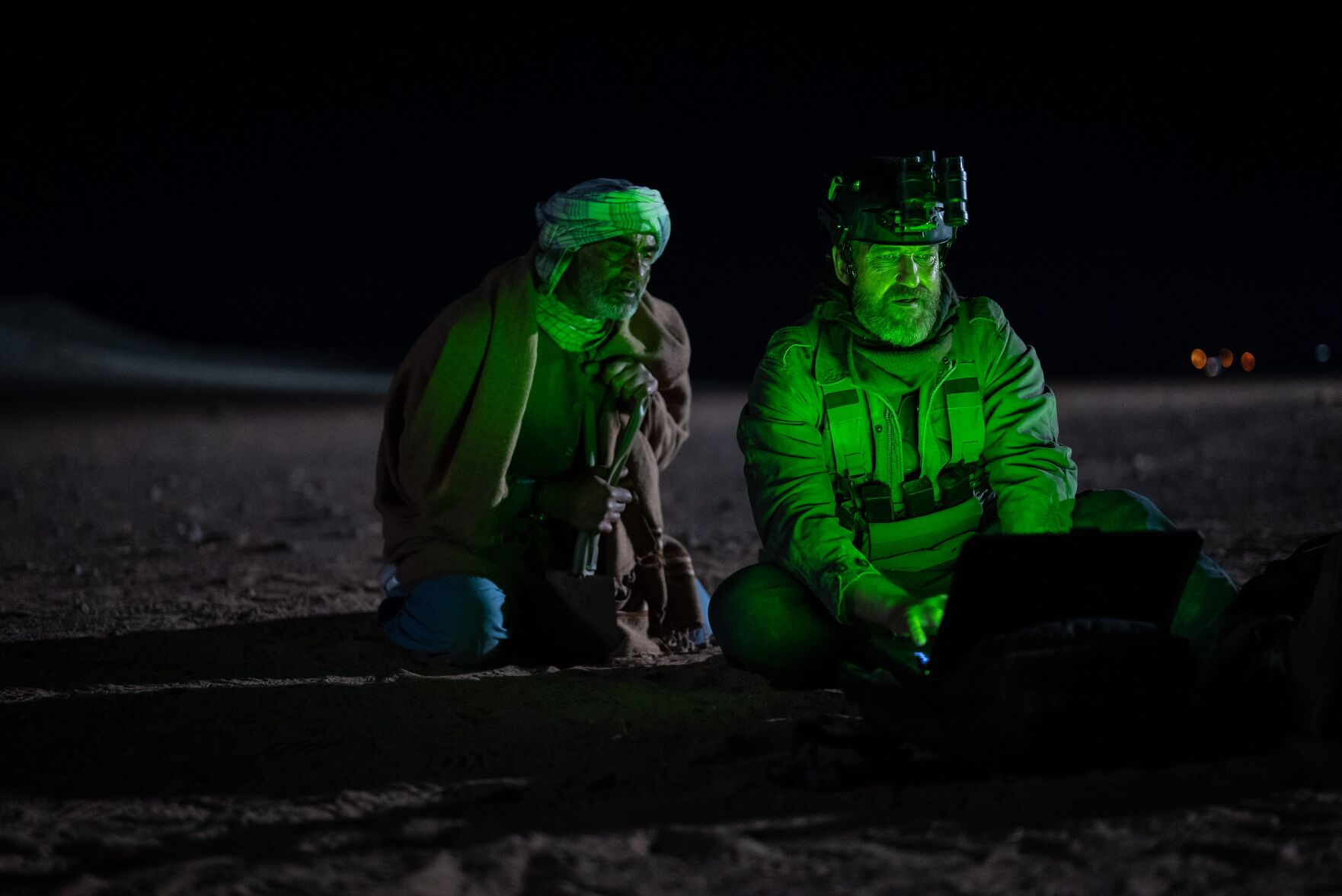
This film posits that the U.S. government in conjunction with the British government was able to launch a cyberattack against an Iranian nuclear facility. This is obviously a reference to the real-life Stuxnet attack in Iran. This film suggests that it took two men, one of whom being Tom Harris, having to physically be in the country in order to achieve that cyberattack, which then resulted in a massive physical explosion. At the same time, it has Luna get intelligence about this very attack with details of the agents involved.
Ten years after Snowden's 2013 leak, there has been no reporting that undercover agents, field officers or other human assets were put in that kind of direct danger due to Snowden's leak. No one was burned like that. LaFortune might have knowledge to the contrary, but nothing that's been made public, as far as I know.

Whether or not LaFortune agrees with what Snowden did, it's not evident in this film. It's likely LaFortune doesn't agree, as a leak is what initiates the protagonists being put in harm's way, but I never felt the film taking a political stance, condemning the leak. On the same token, this film depicts the U.S. and the U.K. committing what is essentially a terrorist attack on Iran, and that's not condemned either.
There is an interpretation here that Butler's character of Tom Harris is a terrorist. His character is the one who executes the plan that results in Iran's nuclear facility being bombed. He's not the one who actually bombed it, but the bombing couldn't have happened without him. We're not at war with Iran. This bombing wasn't necessary and won't stop Iran from building another nuclear facility, a fact that Tom himself states in the film. The only reason he's considered a hero is because he's working on behalf of the U.S. and the United Kingdom. Otherwise, he would be considered a terrorist.
Rated R for violence and language.
Running Time: 1 hr. and 59 mins.
In theaters.

